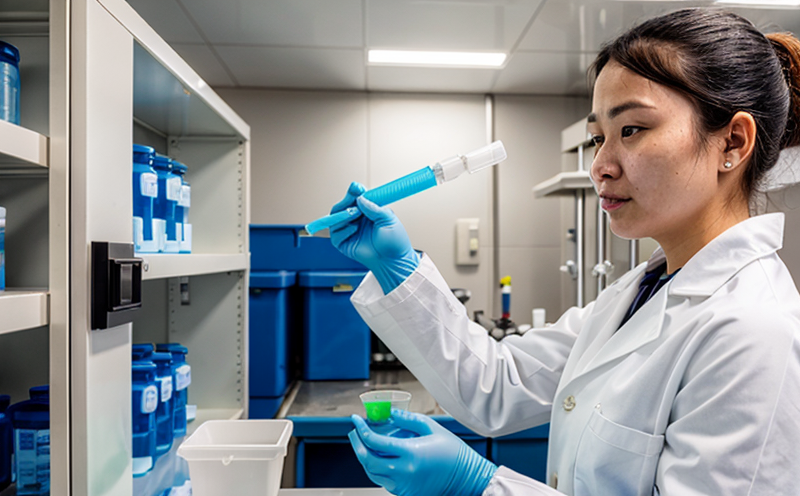USP Container Closure Microbial Integrity Testing
The USP (United States Pharmacopeia) Container Closure System Microbial Integrity Testing is a critical process in the pharmaceutical industry designed to ensure that containers and closures used for drug products do not provide a pathway for microbial contamination. This testing is crucial because even small breaches can lead to product spoilage, contamination with harmful microorganisms, and subsequent health risks.
Container closure integrity tests are required by regulatory bodies such as the United States Pharmacopeia (USP) and the European Pharmacopoeia (Ph.Eur.). The primary objective of these tests is to ensure that the container-closure system effectively protects the product from environmental contaminants, including bacteria, fungi, viruses, and other microorganisms.
The testing process involves assessing the integrity of containers such as vials, syringes, ampules, and multi-dose containers. This ensures that the pharmaceutical products remain stable under storage conditions until they are used by patients or healthcare professionals. The test is particularly important for parenteral medications, which must be sterile to prevent infections.
The testing methodology involves exposing the container-closure system to different test organisms, such as Escherichia coli, Pseudomonas aeruginosa, and Candida albicans. These organisms are chosen because they represent a range of microorganisms that could potentially enter through breaches in the container closure. After exposure, the containers undergo visual inspection for any signs of leakage or microbial ingress.
The testing process also includes the use of gas chromatography-mass spectrometry (GC-MS) and other analytical techniques to identify potential contamination. This ensures that even trace amounts of microorganisms are detected. The results of these tests are documented in accordance with USP 1207 and are used by pharmaceutical companies, regulatory bodies, and healthcare providers to ensure the safety and efficacy of drug products.
The success of container closure integrity testing is heavily reliant on the quality of materials used. This includes the glass or plastic containers themselves as well as any closures like caps or stoppers. The material must be inert to the product and not contribute to degradation. Additionally, the design of the closure system plays a significant role in ensuring microbial integrity.
Once the testing is complete, results are reported according to USP 1207. This report provides detailed information on the test conditions, organisms used, visual inspection findings, and any analytical data. The report is essential for regulatory compliance and internal quality assurance processes.
International Acceptance and Recognition
- The USP Container Closure Integrity Testing has been widely accepted in North America and Europe, particularly by the FDA (United States Food and Drug Administration) and EMA (European Medicines Agency).
- Many countries around the world have adopted standards based on or aligned with the USP guidelines. This includes Australia, Canada, Japan, and many others.
Environmental and Sustainability Contributions
- The testing process helps to reduce waste by ensuring that only containers meeting strict integrity standards are used in pharmaceutical packaging.
- By preventing microbial contamination, the testing also reduces the need for post-packaging sterilization processes, which can be energy-intensive.
- The use of high-quality materials and rigorous testing methods ensures that products have a longer shelf life, reducing waste at the end-user level.
Use Cases and Application Examples
| Application | Description |
|---|---|
| Vials for Injectable Medications | This type of container is frequently used in parenteral medications. The USP Container Closure Integrity Testing ensures that the vials remain sterile and do not allow microbial ingress. |
| Syringes and Intravenous Bags | The testing process ensures that these containers are impermeable to microorganisms, reducing the risk of infections for patients receiving intravenous treatments. |
| Ampules | These single-dose containers need to maintain their sterility until opened. The USP testing guarantees this through rigorous integrity checks. |





